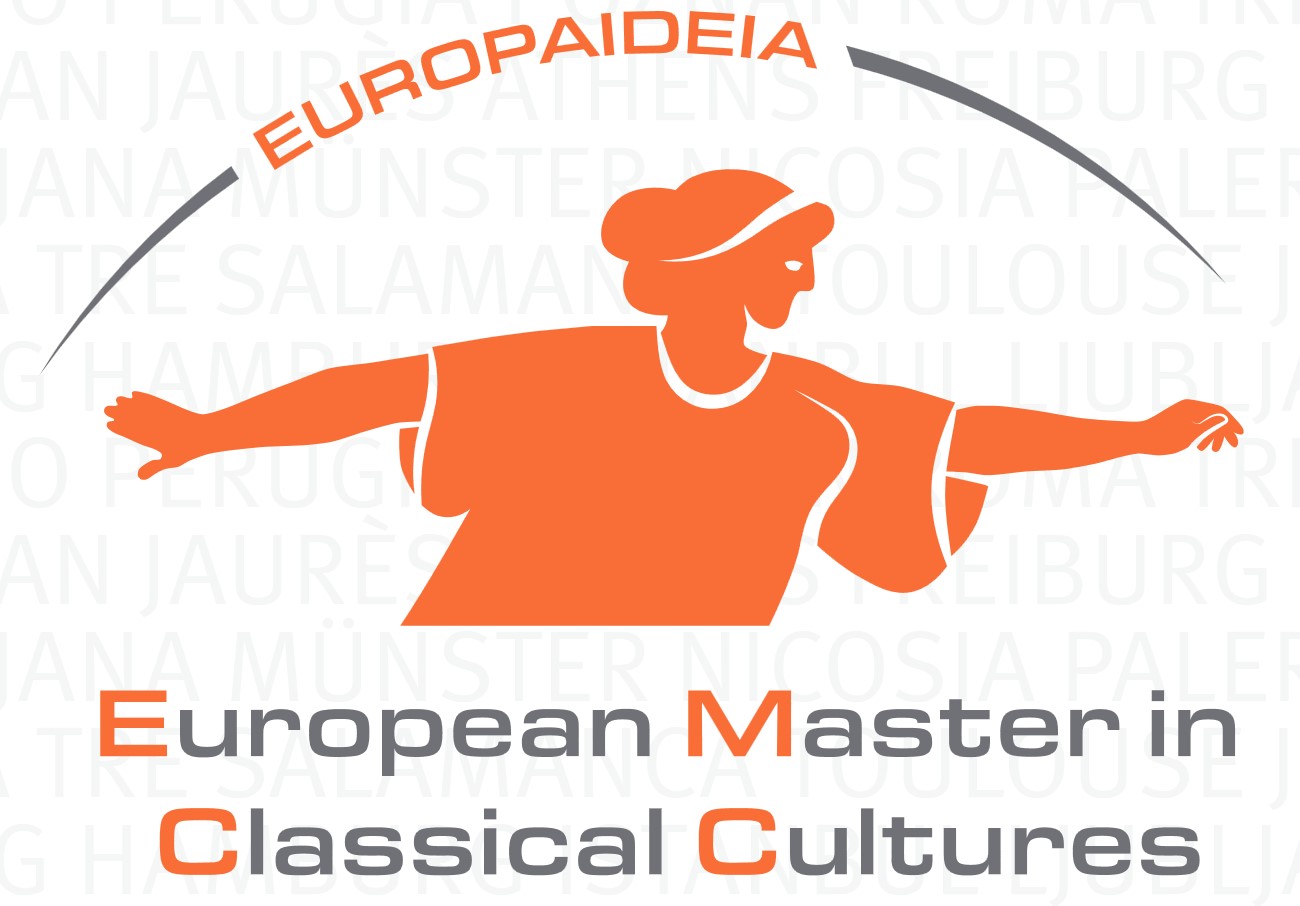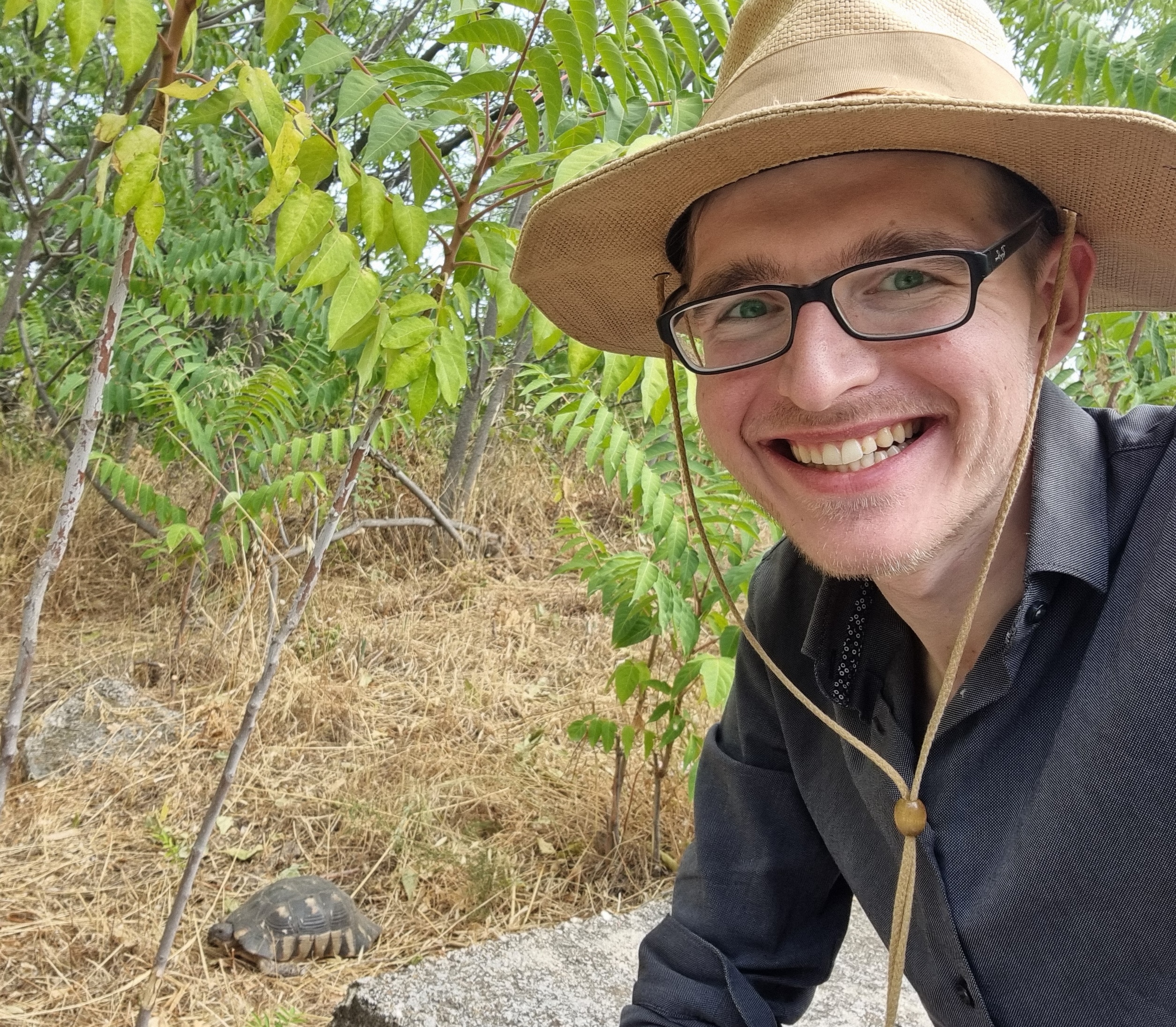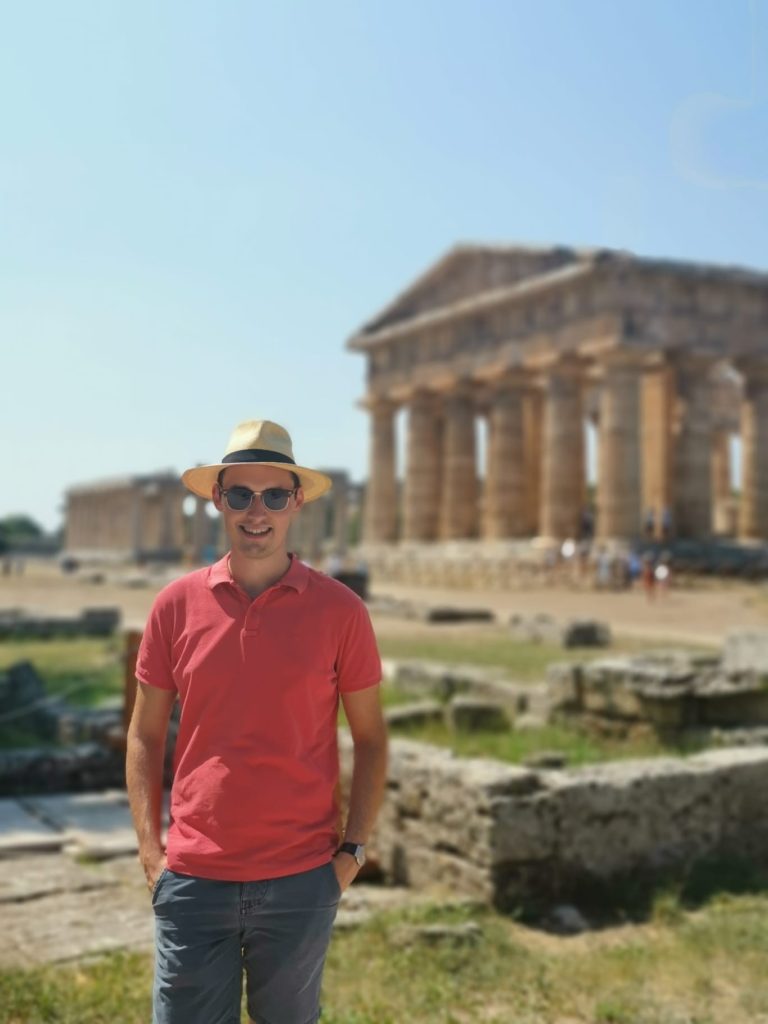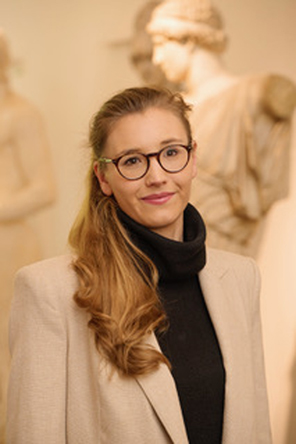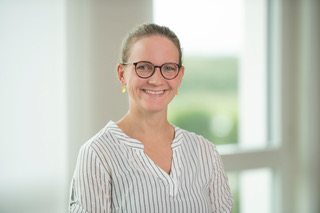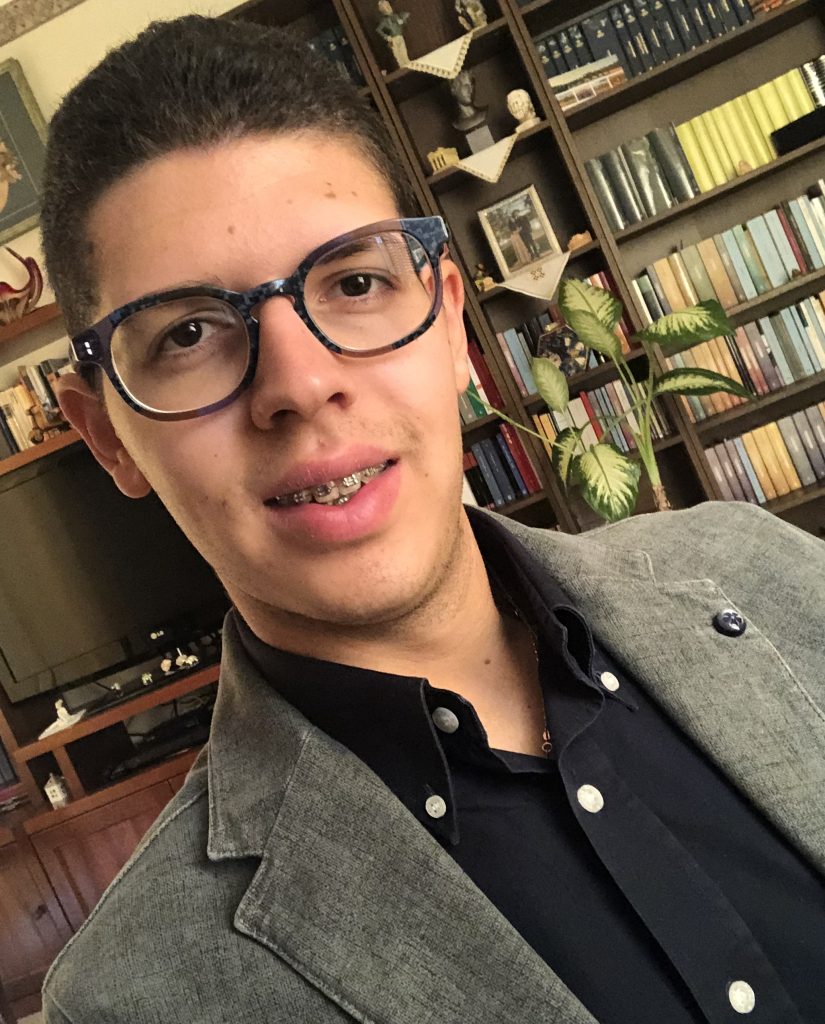Lukas Duisen (2022-2024; Münster/Toulouse)
“My memory of the EMCC is first and foremost connected with the concept of academic freedom in the broadest sense of the term. In a time when a neoliberal university system and societal expectations make many students look almost exclusively for credit points and “relevant job qualifications”, I really appreciated the intellectual curiosity and responsibility granted to me as a student of this master program. Its flexible module structure allowed me to choose the courses that I was really interested in, and thus gave me the opportunity to foster my own research portfolio while at the same time looking beyond the immediate needs of what study regulations might require.
In doing so, I could profit from both the interdisciplinary as well as the international character of the EMCC, studying a broad variety of historical, philological, and archaeological subjects in Münster and Toulouse, visiting a vibrant Summer School in Palermo, and taking part in archaeological fieldwork in Greece twice. In addition to a uniquely intensive supervision structure with regular, critical exchanges between students and coordinating professors, this helped me to create my own research network and, not least, start great friendships across borders. This truly European experience has left a lasting impression on me, since studying the EMCC does not only imply working on the ancient world, but also caring for how we might use our intellectual capacities and knowledge to shape our shared continent’s future.
Consequently, the thorough, self-directed, and modern education in Classical Cultures offered
by the EMCC is far from a dusty, classicist vision of white marble and “great men”: It forms the core of a great study program that I can fully recommend to anyone interested in what antiquity can still offer to those who are willing to think deeply, learn openly, and stay curious about the world. Thus, it has proven to be the best preparation not only for my current PhD studies in Ancient History, but also for navigating the challenges and opportunities of our own time.”
Simon Schall (2019-2022; Freiburg/Roma III)
“I have benefited immensely from studying the EMCC. On a practical level, I had the opportunity to learn from many excellent professors with different backgrounds, interests and methods acquiring a skillset essential for conducting research on Classical antiquity. More broadly, the course offered a window into the different (scholarly) cultures of Europe helping me to reflect deeply on my own perspectives and approaches. Currently, I am putting these experiences into practice as a pre-doctoral research assistant and PhD student at the University of Freiburg, working on a thesis on commerce in Ptolemaic Egypt.”
Caterina Schorer (2020-2024; Freiburg/ Toulouse)
“The EMCC fosters high-quality education, and the personalised program structure with close mentorship from professors and peers is a strong asset. As a student, my experience was shaped by intellectual intensity, a motivating scholarly spirit, and critical exchange. The program helps you build the necessary competences to conduct interdisciplinary research in multilingual academic and institutional settings, while enhancing your flexibility, organisational capacity, and independence. Having graduated from the EMCC, I am currently continuing my studies in a joint binational PhD (Cotutelle de thèse, universities Heidelberg and Zurich), a natural progression given the formation and international perspective I gained.”
Katharina Ebeling (2010-2012; Münster – Toulouse)
“I have studied the EMCC in the very first years (2010-12) at the universities of Münster and Toulouse. My focus of study was on ancient history, especially historiography, and archeology. I graduated with a thesis about the connections and dependencies of Greek and Mesopotamian genealogies.
Attending in this course of studies has been an amazing opportunity for me: I not only had the chance to study abroad but also to make connections and get to know researchers from the participating universities. I consider that a great intellectual and personal enrichment. Moreover, I had the chance to take part in different internships and excavations as a great practical addition to the theoretical studies.
At long sight, the EMCC provided me with the abilities and the knowledge necessary for my work life: I have been a researcher in the department of ancient history at the university of Freiburg. Later on, I wanted my knowledge and insights in classical cultures be from value when working in the present and became an IT-Consultant. As for now I develop and improve software in different municipalities in Germany – and meanwhile still resting upon the skills and qualifications I acquired during EMCC.
I would not like to miss my time at EMCC. It provided me with deep insights in classical cultures but also contributed to making me a more open minded, creative and curious person.”
Beatrice Gavazza (2013-2016; Freiburg – Perugia)
“I started attending EMCC in 2013 at the Albert Ludwig University in Freiburg, choosing the University of Perugia as my partner university.
These were extremely formative years, in which I was able to deepen my understanding of the topics I was interested in and broaden my perspectives towards new areas. The multidisciplinary structure of the course allowed me to specialize in specific fields of the sciences of antiquity (in my case classical philology) and at the same time to catch up on the basics of related subjects. There were only a few participants, so supervision by the professors in charge – with whom I had a very close relationship – was excellent.
It was not easy to coordinate study at the two universities, as both the counting of credits and the academic schedule differ greatly between Italy and Germany. However, the possibility of having special attention from the lecturers allowed me to solve any possible problem.
Another decisive aspect of the Master program for me was its international character. I met colleagues formed in other university systems and experienced first-hand the academic offerings of at least two European countries. During the Master course, I made contacts that inspired me and prompted me to try to continue my academic career. The double degree at the end of the course made it easier for me to get a scholarship for a PhD. Today, after completing my PhD, I am a postdoctoral fellow and assistant to the chair of Ancient Greek at the Albert Ludwig University in Freiburg.
I believe that if I had chosen a different type of path, I would not have gone so far down this way and would not have realized many projects that were and are important for both my professional and personal development.”
Francesca Scifo (2021-2022; Palermo-Toulouse)
“My studies were greatly enriched by obtaining a double degree through the chance offered by EMCC. I studied at the Université Jean-Jaurès de Toulouse from September 2021 to March 2022. The added value of this educational experience was the interdisciplinary nature, as we delved into various fields: archaeological, historical, epigraphic, philological and literary. It was extraordinary to be able to interact with colleagues from all over Europe, we were all linked by a common thread which is the love for ancient culture. Especially during the Blockseminar held in June in Toulouse, I was able to learn more about the study interests of my European colleagues.
I highly recommend all colleagues who study the classical world to think about taking the EMCC route, as one is enriched from a human, educational and working perspective. A truly unique and extraordinary experience took place in Toulouse: I had the opportunity to work in the epigraphic research centre of the University of Toulouse with the MAP project team.
I believe that this study experience can really leave a fundamental imprint on the lives of all students.”
Francesco Scozzaro (2021-2022; Palermo-Toulouse)
“I started my double degree experience, through the course offered by EMCC, on 17 September 2021 at the University of Toulouse Jean Jaurès, where I stayed until 15 March 2022. This experience enriched me a lot, both from an educational and a human point of view. I think that one of the best features of the EMCC is the possibility to interact and compare cultures on an international level, and also to make great friendships.
The participation in various activities, conferences and seminars gave me the opportunity to develop a forma mentis dedicated to the confrontation, research and interdisciplinarity of the different themes of the ancient world. The proof is the final stage of this wonderful experience, the Blockseminar held in Toulouse in June 2022. It was an exciting experience that I will always remember with pleasure and profit.
Therefore, I highly recommend this course to all colleagues who wish to study abroad and who want to consolidate their training with an intense opportunity for exchange and cultural comparison.”
Teresa Sissy De Blasio (2019-2021; Münster – Rome)
“I started the EMCC program in 2019 in Rome choosing the University of Münster as host university. My main field of study was Ancient History, in particular Greek Epigraphy, but the EMCC gave me the opportunity to get awarded other ECTS in Classical Archaeology and Classical Philology so that I could have a more comprehensive knowledge in these three macro areas. I graduated in March 2022 with a thesis on the meaning of the scepter in the Greek inscriptions from Lydia.
When I first heard about this program, I was delighted to have the opportunity to spend one semester in another university and to learn a new foreign language. Moreover, I decided to apply for this program because I was sure it would have strongly enriched my education and helped me in my career.
Unfortunately, due to the pandemic, during my semester abroad lectures were only held online, but it was still a great experience. First of all, I had the opportunity to deal with a new university environment. For example, in Germany, unlike in Italy, in addition to lectures (Vorlesungen), there are also seminars that allow an active students’ participation through presentations and final papers on a specific topic. The seminars therefore allowed me to work in group with other students, to know them and also to practice my German. All courses were very interesting, and professors were very helpful and ready to help me at any time.
In addition, the EMCC has allowed me to have challenging experiences. A very positive one was the Summer School, which gave me the chance to talk about my master’s thesis and receive helpful suggestions from professors of many European universities. Another very formative experience was the internship I did in Berlin at “Inscriptiones Graecae”, which allowed me to learn about the practical side of epigraphy through editing a text and making epigraphic squeezes.
I strongly recommend this program to anyone who wants to have a multidisciplinary education in antiquity and likes to challenge themselves and deal with realities different from their own and far from their comfort zone.”

Eleni Krikona (2020; Hamburg – Athens)
“I am an alumna of the EMCC Double Degree Course, currently conducting my PhD research in ancient history (specifically in ancient Greek political thought and theory). I graduated from the EMCC programme in 2020, receiving a double M.A. degree from the University of Hamburg and the National and Kapodistrian University of Athens.
What I enjoyed most during my postgraduate studies was the fact that I had to choose two specializations among the following three: ancient history, classical archaeology, and classical philology; in my case that was ancient history and classical archaeology. Apart from that, my programme consisted of several other modules from different areas of studies, such as ancient languages and philosophy. That diversity of topics, related to all periods of ‘classics’, from the archaic era till the late Antiquity, kept my interest for the study of the classical world renewed throughout my master’s studies.
Another benefit of the EMCC programme was the compulsory participation of all of us students in a two-month paid internship in an institution that cooperates with the universities offering this unique programme. That internship (in my case that was at the German Archaeological Institute in Athens, where I worked on the Samos-Archive) helped me gain invaluable work experience that opened up new job opportunities for me. Last but not least, my participation as an EMCC student in the summer school of 2019 that took place in Rome (at the Università Roma Tre), helped me gain confidence in presenting the results of my research in front of a specialized audience.
I would definitely recommend the EMCC programme to future postgraduate students of the Antiquity, as it offers a plethora of different perspectives for the study of Classics, promoting interdisciplinarity, while offering an in-depth high quality of studies in the field we all love so much!”
Sandro Paul Heidelbach (2019-2021; Münster – Salamanca)
“The European Master of Classical Cultures was a very enriching experience for me, not only because of its high professional quality but also its careful supervision. Once you have embarked on the programme, you soon notice how much curiosity and encouragement you receive from the EMCC community, but also beyond. This facilitates developing interests in a deliberate way and helps finding one’s voice in research. Welcomed into a community of many bright young minds from all over Europe, one quickly learns to exchange ideas across disciplinary boundaries and makes many valuable contacts.”
Student Voice
“EMCC gave me the chance to study and develop my knowledge in an international environment with a lot of academic support. The help of all EMCC coordinators helped me a lot to gain relevant experience in the fields I was interested into. I also appreciated the interdisciplinary approach and the resulting possibility to take part in classes on varied topics, going from ancient history to archaeology to philology. The most valuable aspect is the possibility to connect with both international students and professor. Building a network of contacts helped me a lot in the development of further study and work.”
Student Voice
“EMCC changed my life as I fell in love with the country of my partner university. I declined the phd offer in order to stay there, ended up staying 6 years and I am really happy with this choice! No doubt the major positive aspect of the EMCC is the year abroad + the diploma you receive also from the partner country. The summer school was fantastic, and my internship abroad too even if it had nothing to do with subjects of interest to me. Positive aspects also were how helpful the Coordinator in partner university was.”
Student Voice
“I liked a lot that I could study so many different topics in different subjects. Also I`m very thankful for the opportunity to have studied abroad, which was a really fantastic experience. I enjoyed my stay very much and the timetable with all the courses was like if it was made just for me. The international course (summer school) during my studies gave me the opportunity to get to know international students who are also interested and fascinated by ancient culture. I especially liked the international atmosphere with the multilingual environment.”
